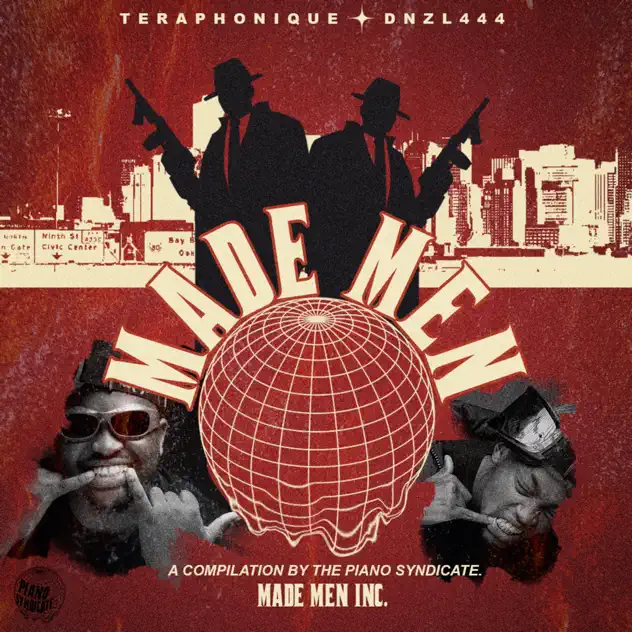Chief Olusegun Matthew Okikiola Aremu Obasanjo, GCFR, is a Nigerian military and political leader who served as military head of state from 1976 to 1979 and later as President of Nigeria from 1999 to 2007. Ideologically a Nigerian nationalist, he was a member of the People's Democratic Party.

Obasanjo Background
He was born Olusegun Mathew Okikiola Aremu Obasanjo on March 5 1937. He was born to Amos Adigun and Ashabi Obasanjo in Abeokuta, Southwest Nigeria. Obasanjo lost his mother and father to death in 1958 and 1959 respectively.
In 1948, he attended Saint David Ebenezer School, Ibogun for his primary education. Subsequently, he moved to Baptist Boys’ High School (BBHS), Abeokuta. In 1958, Obasanjo joined the Nigerian Army. At age 81, Obasanjo holds a Master and Ph.D degree in Christian Theology from the National Open University of Nigeria (NOUN).
Olusegun Obasanjo Personal Life
Obasanjo has been married many times to Bola Alice, Esther Oluremi, late Lynda, late Stella Abebe and late Mojisola Adekunle. Altogether, he has twenty children. Some of his children are also leading at the helms of Nigerian affairs.
Additionally, Obasanjo is the Balogun of Owu and the Ekerin Balogun of the Egba clan of Yorubaland. Also, Obasanjo announced that he gave his life to Christ while he was in prison.
Career In The Military
Olusegun Obasanjo joined the Nigerian Army in 1958 and went on to study in England and India. In the army, he rose quickly through the ranks. After joining, he served in the 5 Battalion in Kaduna and Cameroon. In 1959, he became a second Lieutenant, and in 1960, he was promoted to a Lieutenant.
While a Lieutenant, he served in the Nigerian Contingent of the United Nations Force in Zaire. He was selected for the Congo operations due to his creditable performance in training and internal security exercises earlier in Southern Cameroon.
Furthermore, he was promoted in 1962 to a temporary captain and then attended the Royal College of Military Engineering, England for a course. After training in 1963, he joined the engineering unit of the Nigerian Army and became the unit commander. That same year, he was promoted to the rank of a captain and attached to the College of Military Engineering at Kirkee, India.
In 1965, he became a major and subsequently attended the Defence Services Staff College Wellington, India. There, he was regarded as the best Nigerian officer sent to Wellington.
In 1967, he became a lieutenant colonel, and was appointed as commander, second area command of Nigerian Army. Thereafter, a commander, Garrison, Ibadan, Nigeria, until 1969.
In 1969, he was promoted to colonel and appointed general officer commanding 3 Infantry Division, Nigerian Army.
Civil War And Aftermath
Obasanjo was made Commander in charge of Marine Commando Division, South-Eastern Nigeria during the Biafran Civil War. And in 1970, he accepted the Biafran surrender ending the Nigerian Civil war.
From 1970 – 1975, Obasanjo commanded the Engineering Corps, and was promoted to the rank of Brigadier General in 1972.
In January 1975, Gen. Yakubu Gowon, the then Head of State made him the Federal Commissioner for works and housing. And in July of same year, he was appointed as the Chief of Staff Supreme headquarters after Gen. Murtala Mohammed took over as the head of state in a military coup. The following year, he became a Lieutenant General.
Head Of State
On February 13 1976, Obasanjo escaped death in a coup led by Col. Dimka. The coup was unsuccessful as the plotters only killed Gen. Murtala Muhammed, while Obasanjo and Gen. Theophilus Danjuma escaped death. Danjuma was the chief of army staff and de facto number three man in the country at the time. Obasanjo and Danjuma then established a chain of command and gained control of the system.
Following this, Obasanjo was appointed as Head of State by the Supreme Military Council on Feb. 13, 1976. He then pledged to continue the programme for the restoration of civilian government and to improve the quality of public service in Nigeria.
On October 1, 1979, he resigned as the Head of State and from the Nigerian Army. He then handed over to Shehu Shagari, the newly elected civilian president of Nigeria.
As the Head of State (1976 1979)
While Obasanjo was the head of state, he reformed agriculture by establishing the Operation Feed the Nation’ Programme. He also built the Warri refinery and revenue from oil increased. Additionally, he built the Murtala Mohammed International Airport in Lagos.
Also, under his regime, the Nigerian universities increased from five to thirteen. He established the Joint Admissions and Matriculation Board (JAMB). Also, there was a boom in industrialisation and more investments were made on infrastructure.
Olusegun Obasanjo was the first Nigerian head of state to hand-over power to a democratically elected civilian president.
President
Obasanjo was imprisoned by Sani Abacha in 1995 after he spoke out about the abuse of human right that characterised Abacha’s regime. He was accused of allegedly participating in an aborted coup. He was sentenced to death which was later reversed to 30 years jail term.
Fortunately, he was released after the sudden death of Abacha on June 8, 1998. And in the following year, he ran for the presidential elections under the Peoples’ Democratic Party, PDP. He won with about 63% votes defeating Chief Olu Falae, the joint candidate of the All Peoples Party, APP and the Alliance for Democracy, AD.
This was the first democratic election after sixteen years of military rule. Obasanjo was sworn in as the president of Nigeria on May 29, 1999 and the day is commemorated as a Democracy Day in Nigeria. Although, it was recently changed by President Muhammadu Buhari in 2018 to June 12 in honour of Chief M.K.O Abiola.
As The President, Federal Republic Of Nigeria (1999-2007)
President Olusegun Obasanjo served two terms as the president of Nigeria. He was elected for his second tenure in 2003 after defeating Gen. Muhammadu Buhari. Then, he handed over to President Umar Musa Yar’adua.
As the President, he made some notable contributions to Nigeria. For instance, he sustained democracy in Nigeria.
To enhance Nigeria literacy level, he introduced Universal Basic Education (UBE). Also, he created Niger Delta Development Commission. He reformed pension and established the Independent Corrupt Practices Commission (ICPC) and Economic and Financial Crimes Commission (EFCC).
He also introduced the Global System of Mobile (GSM). This was after the mobile technology was already existing in neighbouring countries like Benin, Togo, and Ghana. Additionally, he secured debt pardons for Nigeria from the Paris and London Club. Also he initiated extensive privatization programme of public enterprises.
Obasanjo Books
Obasanjo is an author and he has written series of books. Some of them include;
Not my Will, 1990
My Command, 1980
Management in Agriculture and Rural Development, 1983
Nzeogwu, 1987
Africa in Perspective, 1987
Forging a Compact in U.S. African Relations: The Fifth David M. Abshire Endowed Lecture, Dec. 1987.
Africa Embattled, 1988
Constitution for National Integration and Development, 1989
Hope for Africa, 1993
The Animal Called Man, 1998
Guides to Effective Prayer, 1998
Sermons from Prison, 2000
A New Dawn, 2001
Africa Through the Eyes of a Patriot, 2001
I see Hope, 2002
Standing Tall, 2005
Years of Reconstruction, 2007
My Watch, 2014
My Watch Volume 1: Early Life and Military, 2015
Volume 2 My Watch: Political and Public Affairs, 2015
My Watch Volume 3: Now and Then, 2015
Making Africa Work: A Handbook, 2017
Democracy Works: Re-Wiring Politics to Africa’s Advantage, 2019
Obasanjo Businesses
Obasanjo is a business man and has so many personal investments.
For his love for agricultural development, he established Obasanjo farms in 1979. Today. Obasanjo Farms provides employment for thousands of Nigerians.
Also, in 1995, he established a co-educational school, the Bells comprehensive secondary school. The secondary school is located in Ota, Ogun state.
Additionally, under The Bells Foundation, he established the Bells University of Technology in 2004.
Obasanjo Philanthropy
Obasanjo awards prizes in his name on yearly basis. Some of the prizes are: Star Prize, Prize for Scientific discovery and many more.
He established a not-for-profit organisation, Africa Leadership Forum because of his love for peace and good leadership.
In order to help humanity, he also established the Olusegun Obasanjo Foundation.
Olusegun Obasanjo Presidential Library (OOPL)
Obasanjo became the first African president to establish a Presidential Library. The idea was first conceived in a conversation with Mr Nyaknno Osso in 1998.
Later on, an OOPL Foundation was incorporated as a not-for-profit organisation on Nov. 12, 2002. The Foundation was set up to advise, promote and encourage the establishment and development of the library. And in 2017, the Library was established.
Olusegun Obasanjo Presidential Library is one of the biggest educational tourism institutions we have in Africa. It was created as a national archive for the preservation of documents and materials used by the Nigerian president during his tenure. It is located in Ogun State and serves as a tourist attraction in Nigeria.
Awards And Recognition
Obasanjo is a multi-award winner. He is a Grand Commander of the Federal Republic of Nigeria (GCFR). He has been recognized both locally and internationally.
His notable awards and medal include:
Defence Service Medal
Forces Service Star
General Service Medal
Meritorious Service Star
National Service Medal
Republic Medal
Silver Jubilee Medal
Other awards are;
Prize for Freedom, Liberal International, 1997
National Achievement Award, Africa America Institute (AAI), 1999
Agricola Medal, UN Food and Agriculture Organisation, December 2003
Lifetime Achievement Award, African Telecom Hall of Fame Award, 2010
Global Leadership Award, United Nations, 2012
Centenary Award, President Goodluck Jonathan, 2014
Exemplary Ambassador Award, Heartlink, 2015
Leadership in Africa Award, African Muzik Magazine Awards (AFRIMMA), 2017
Father of the Nation, National Youth Council of Nigeria, 2019

Obasanjo Net Worth
Olusegun the richest Nigerian politician with an estimated net worth of $1.8 billion USD.








![Anchakkallakokkan (2024) [Malayalam]](https://www.memesng.com/r/storage.waploaded.com/images/7626a1bfe4cc374ca3d9ff69cf2a7c83.jpg?w=50&ulb=true&ssl=1)
![All India Rank (2024) [Hindi]](https://www.memesng.com/r/storage.waploaded.com/images/ba8779cfc58d3f1cb8f23283cd9327e7.jpg?w=50&ulb=true&ssl=1)
![Snake Skin Beauty (2024) [Chinese]](https://www.memesng.com/r/storage.waploaded.com/images/ef481e7e5ad06fe603d588a2f2e17b90.jpg?w=50&ulb=true&ssl=1)
![My Dear Donga (2024) [Telugu]](https://www.memesng.com/r/storage.waploaded.com/images/536e471183e6285f2621d5e66511aceb.jpg?w=50&ulb=true&ssl=1)
![La Soga 3 Vengeance (2023) [Spanish]](https://www.memesng.com/r/storage.waploaded.com/images/920fbd2c4e72b0f304a41aa7b09cffe9.jpg?w=50&ulb=true&ssl=1)




![Chief Keef & Mike WiLL Made-It - DAMN SHORTY ft. Sexyy Red [Video]](https://www.memesng.com/r/storage.waploaded.com/images/cda8b897b3fb8c82581cc6738c8b0719.jpg?w=50&ulb=true&ssl=1)





![Suji and Uri (2024) [Korean] (TV series)](https://www.memesng.com/r/storage.waploaded.com/images/394b198e59e3725ad4fa904e225d43dc.jpg?w=50&ulb=true&ssl=1)
![In Cold Blood (2024) [Korean] (TV series)](https://www.memesng.com/r/storage.waploaded.com/images/64d0b2050777280ade35b2797b34c503.jpg?w=50&ulb=true&ssl=1)
{{comment.anon_name ?? comment.full_name}}
{{timeAgo(comment.date_added)}}
{{comment.body}}
{{subComment.anon_name ?? subComment.full_name}}
{{timeAgo(subComment.date_added)}}
{{subComment.body}}